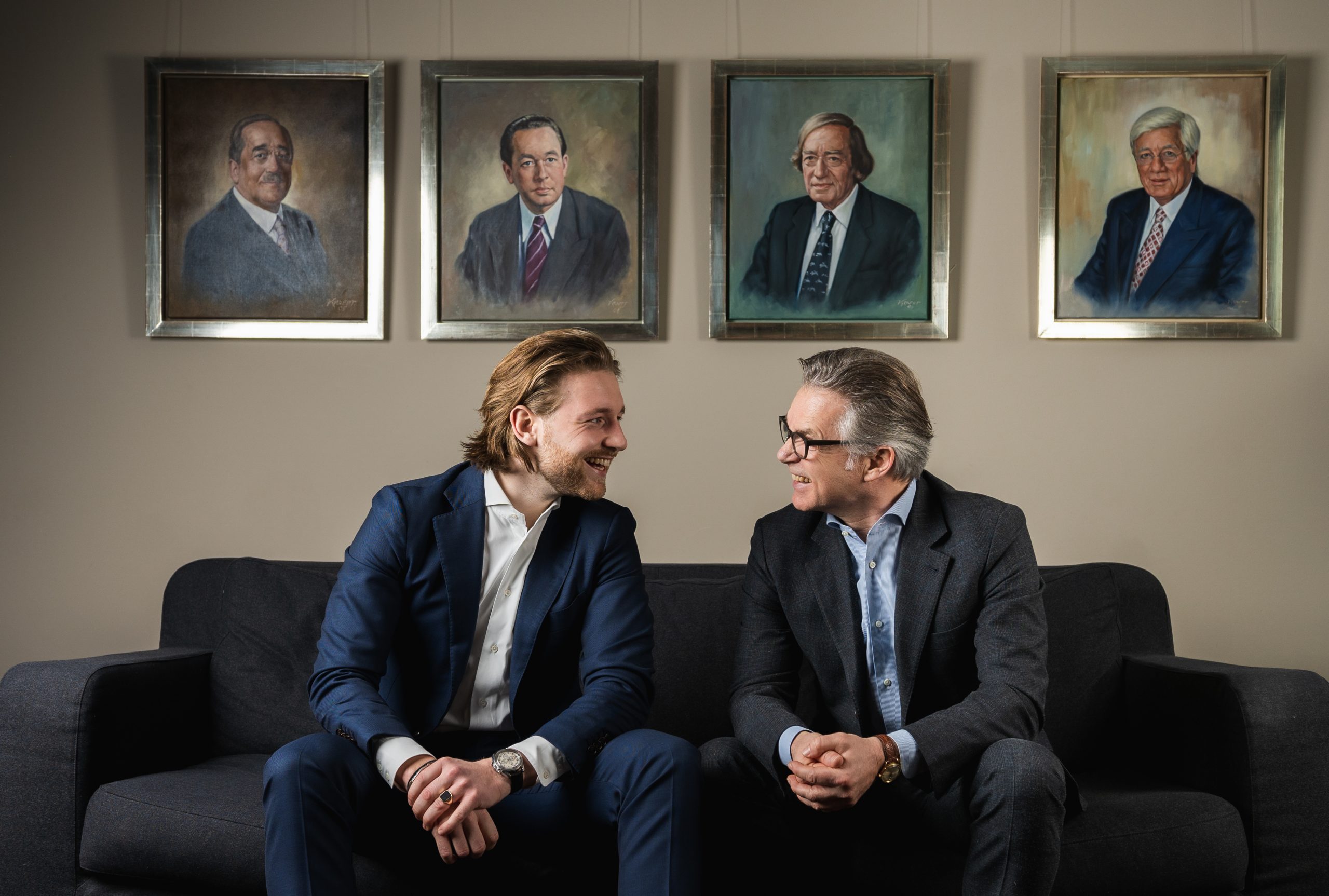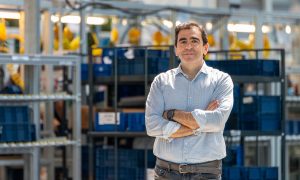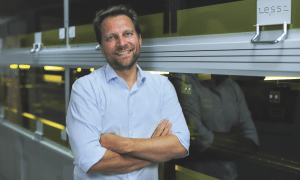Port International can call on almost 150 years of experience in the fruit game – Tiete Port laid the cornerstone for the business back in 1875 when he set up the T.Port company, a small fruit seller in Hamburg. Back then, he could not have imagined how big the venture would become; it’s now one of the leading fruit and vegetable suppliers in Europe, praised for unrivalled produce, smooth delivery, and sustainable values.
Port International is all about family. Tiete’s son Theo took over the business in 1894 and branched out into tropical fruit. This proved a huge hit in Europe as many people had never seen, yet alone tasted, most of the exotic delights the company imported. Then, in 1912, T.Port started supplying bananas from Colombia in refrigerated steam vessels owned by a joint venture between Hapag-Lloyd and Port – this in turn led to the purchase of a fleet of vehicles as demand almost outstripped supply. Business was booming for the Port family but then two world wars followed, stalling operations. Things fired up again in the 1950s as the third generation, John Port, revitalised the banana business. Over the following years, it was his son Hajo Port who continued and expanded trade. He set several milestones such as introducing the Golden B brand in Europe, establishing ties with international partners, and developing an import company in the Netherlands.
New contacts were forged with suppliers in countries including Argentina, Chile, Ecuador, Cuba, Mexico, Colombia, Mozambique, South Africa, and New Zealand. Operations became truly global. Just before the turn of the millennium, Mike Port – Tiete’s great-great grandson – reorganised the entire business to make sure it had the necessary import licenses for bananas, while also establishing a performance-related ethos. Port International, together with its operating daughters Port International Bananas GmbH, Port International Fruit GmbH, and Port International Organics GmbH, were born and there was no looking back.
“I’m the fifth generation to work for the family-run business, my son Karlsson is the sixth generation – the plan is for him to take over in a couple of years because I’m now 60,” Mike says. “I joined the company in 1994 and straight away I started working with the Dutch NGO Solidaridad to evaluate the possibility of introducing bananas as a Fairtrade product, which Port International managed to do in 1997. We initially supplied these bananas to Switzerland and Germany before exporting to the rest of Europe – Port International is a pioneer in this respect. The ideals and standards of the Fairtrade system were a perfect fit for our family-run group – we have cultivated long-term and cooperative trade relations with our suppliers and have always shown social commitment in disadvantaged regions. In 2012, we were awarded the Fairtrade Award and everyone at the company is incredibly proud.”
Port International has also led the way when it comes to organic bananas, Mike adds: “In 2000, we started suppling Europe, despite the fact many people told us going organic was impossible because of the tropical climate in South America, but it’s all about using the right land. Yes, we suffered some crop losses in the first couple of years, but we learned from our mistakes and today it’s working very well. It’s so much better for the environment and our health.”
Another daughter company was set up in 2010, Port International European Sourcing GmbH, enlarging the product portfolio with fruit and vegetables from the Continent and Mediterranean, forging a successful partner- ship with managing partners Philippe Peiró and André Lüling. Lately they also became managing directors of the daughter Port International Fruit GmbH, which focuses on sourcing products from overseas.
Throughout this impressive growth, Port International’s management has never once neglected its commitment to social and environmental issues.
“We regularly implement our own aid projects and support existing programmes all over the world,” Mike explains.
“Some of our highlights have been the construction of a kindergarten in Colombia, the support of a home for mentally disabled people in Ecuador together with one of our German banana customers, the support of SOS Children’s Villages with the construction of six new orphanages, and the completion of a provisionally built kindergarten in Peru. We also face the task of reducing our impact on the environment and climate on a daily basis. We have optimised our logistics processes by introducing climate-friendly routes and delivering products directly from the field to the customers.”
In 2017, Port International, became climate-neutral as a company and added climate-neutral strawberries to its portfolio. Only two years later the company offered these strawberries under BE CLIMATE – the first brand for climate-neutral fruits and vegetables. The brand assortment also includes bananas, blueberries, leaf clementines, and green asparagus. Climate-neutral means that all unavoidable CO2 emissions caused during the cultivation, packing, and logistics process have been calculated, reduced where possible, and compensated in advance with the help of certified climate protection projects. More than 13 million kg of CO2 have been compensated so far with BE CLIMATE products – for comparison, this is the equivalent of about 14 million wash cycles.
The Belgian supermarket Delhaize was the first to place BE CLIMATE bananas on its shelves in January 2020. “We are happy to continue our ten-year partnership with Delhaize with climate-neutral bananas now,” says Mike. “We started the weekly supply of climate-neutral organic bananas to specialised organic dealers in Germany at the same time. Three more European countries have received deliveries, too. Further distribution channels and countries are being planned.”
“BE CLIMATE offers our clients and the consumers in all of Europe an uncomplicated method of actively supporting climate protection,” adds Karlsson
Read the full article here.









